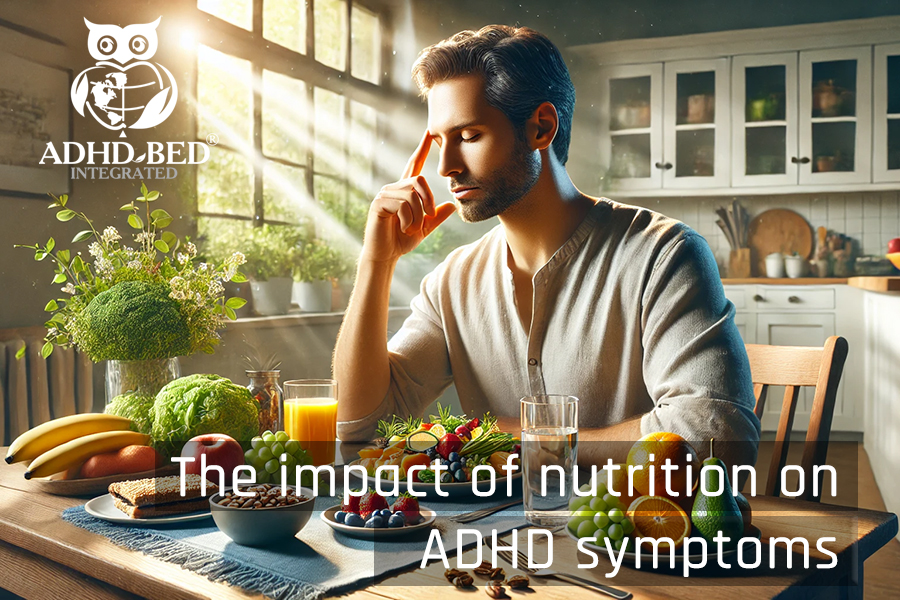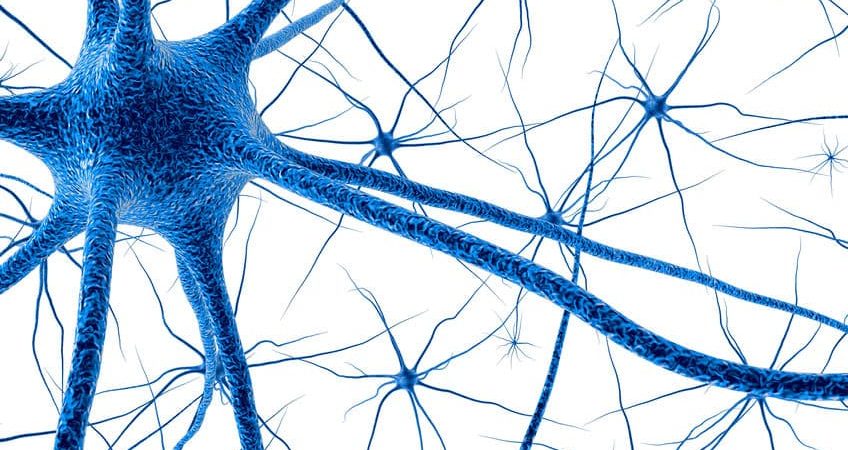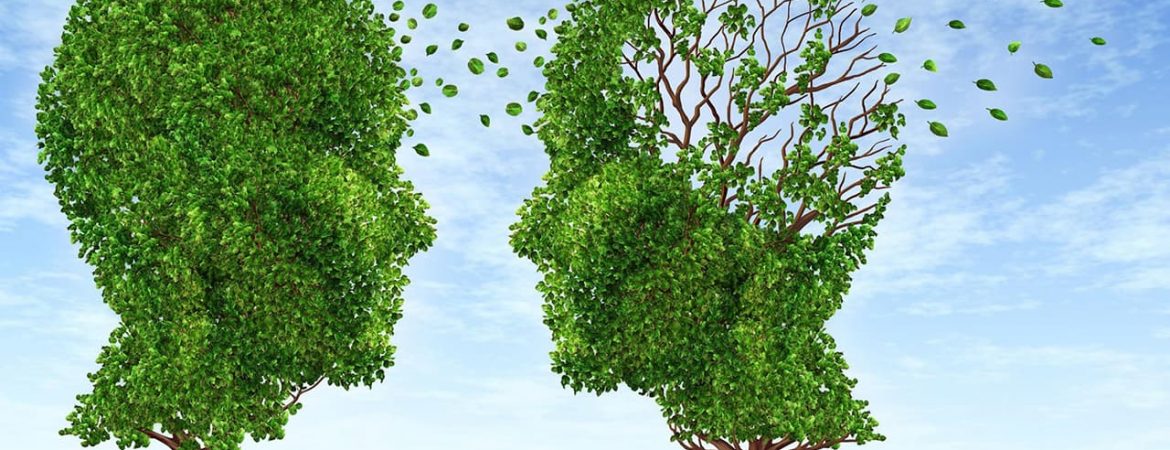Table of Contents
Introduction to the link between nutrition and ADHD symptoms
Exhibiting inattention, hyperactivity, and impulsiveness are hallmark indicators of Attention Deficit Hyperactivity Disorder (ADHD) – a neurodevelopmental condition. This disorder is one of the most common in children, while also significantly affecting many adults. ADHD is believed to be caused by decreased levels of dopamine and noradrenaline in the brain area responsible for self-regulation. When these processes are disturbed, individuals may struggle to complete tasks, perceive time accurately, maintain focus, and control inappropriate behavior. This disruption could potentially affect their work performance, academic success, and their ability to maintain healthy relationships, potentially diminishing their overall quality of life.
A growing number of adults are being identified with ADHD, a condition that is found in approximately 12% pupils in the elementary and middle school. Classic signs of ADHD encompass impulsivity, hyperactivity, and a degree of inattention. Studies suggest that as many as 8% of top-performing athletes and students across various sports fields may have ADHD. Athletes with ADHD, due to their inherent impulsivity, may excel in fast-paced sports. While genetics is understood to play crucial role in ADHD, the exact origin remains undefined. Other contributing factors such as environmental toxicity and inadequate nutrition during infancy, have also been suggested.
The scientific understanding of how dietary choices impact behavior is still in its early stages and is subject to debate. However, it is acknowledged that certain foods do have a bearing on behavior.
For example, substances like caffeine, chocolate, and alcohol may potentially influence mood and behavior and have the ability to worsen the ADHD symptoms.
The impact of nutrition on ADHD symptoms
Achieving a joyful and meaningful life hinges on consuming a nutritious, balanced diet. Incorporating such a diet can notably enhance the treatment for some ADHD symptoms.
By eating healthily, the risk of succumbing to numerous chronic diseases, including heart disease, can be significantly diminished. Exercise and physical activities are further recommended as integral parts of a wholesome lifestyle.
Dietary approaches for ADHD often involve eliminating one or more items from a diet, such as sugar, sweets, or foods containing artificial red color. The underlying theory suggests that dietary sensitivities may play a part in triggering or aggravating ADHD symptoms.
There’s a growing belief among some individuals that certain essential nutrients are missing from their diets, leading them to turn to nutritional supplements and high doses of vitamins. Such dietary supplements are found to positively impact ADHD symptoms.
Nutrients and ADHD
There are a lot of studies that dietary supplements and micronutrients can positively influence the brain activity and make the symptoms of mental disorders less severe. However, not all scientists share this conviction. According to some reviews of researches, there is insufficient evidence to support the claim that omega-3 supplements, iron, zinc, magnesium, Vitamin B6 or any specific diet reduce ADHD symptoms, so it is very important to consult the specialist in every individual case.
Omega-3 Fatty Acids in ADHD treatment
Omega-3 fatty acids play an instrumental role in brain functions, assist in diminishing inattentiveness and enhancing task completion. They also curb hyperactivity, impulsivity, aggression, and restlessness.
Often, people diagnosed with ADHD exhibit lower levels of omega-3 fatty acids compared to their non-ADHD counterparts.
Furthermore, a correlation has been observed that the more academic and behavioral challenges people with ADHD face, the lower their levels of omega-3 tend to be.Given these facts, it stands to reason why numerous studies have indicated that omega-3 supplementation can mildly alleviate ADHD symptoms.
Connection between Iron and ADHD symptoms
Ensuring nutritional sufficiency is vital in ADHD management, given that iron deficiency can impair cognitive capabilities, leading to poor memory, inattentiveness, and impulsivity, along with an unpredictable appetite, and mood swings including sadness and irritability. Altered iron levels can exacerbate ADHD’s susceptibility, severity, and progression, with severe iron deficiency being associated with a 30% increase in impulsive, hyperactive, and inattentive behaviors.
Reduced iron (ferritin) reserves in the liver are also correlated with sleep disturbances and an increased incidence of restless leg syndrome.
While prioritizing a food-centric approach, individuals with high nutritional requirements may find supplements beneficial. The interplay between immunity, anemia, and plant-based nutrition plan is also widely discussed in the context of iron-rich foods such as red meats, poultry, salmon, and foods abundant in zinc.
Moreover, it’s been shown that iron supplementation can decrease the risk of cardiovascular incidents when used in conjunction with ADHD medications.
Zinc in its influence on the ADHD
Another mineral which shares the same carrier protein as Iron is Zinc and it is connected to the lowering hyperactivity caused by ADHD. Zinc deficiency is also linked to essential enzymes and changes in melatonin and dopamine. Adults need 8-11 mg of Zinc daily, depending on circumstances and style of life. Consuming zinc supplements may reduce impulsivity. High levels of zinc, however, may be dangerous.
Magnesium Enhances and its influence on mental disorders
In a particular study, there was a substantial increase in the blood levels of vitamin D and magnesium after an eight-week supplementation regimen, resulting in a significant reduction in behavioral difficulties, social issues, anxiety, and signs of shyness.
Vitamin B6 in reducing ADHD Symptoms
This nutrient is instrumental in the development of myelin, a protective layer that insulates nerve cells. A deficiency in vitamin B6 can lead to suboptimal myelin formation, which can trigger neuropathy, a condition causing numbness, tingling, and weakness in the extremities.
Vitamin B6 is essential for synthesizing serotonin, a neurotransmitter that regulates mood and sleep. Low levels of vitamin B6 could potentially decrease serotonin levels, intensifying symptoms of depression and anxiety.
GABA, another neurotransmitter that governs the activities of nerve cells in the brain, can only be synthesized in the presence of vitamin B6. Insufficient levels of vitamin B6 can lead to reduced GABA levels, causing disorientation, irritability, and other neurological symptoms. A healthy adult’s recommended daily intake of vitamin B6 is typically 1.3 mg.
Dietary Patterns and ADHD
Western Diet and its connection to the ADHD disorder
Many families grapple with the question of whether dietary improvements could help mitigate ADHD symptoms. For some, this could indeed be the case. Certain dietary habits have been associated with ADHD symptoms. Even after adjusting for various influencing factors, people of all age consuming a Western diet, characterized by high intake of salt, saturated fats, and low intake of omega-3 fatty acids, fiber, and folate, showed higher prevalence of ADHD. This could be due to the impulsive and reward-driven behaviors typically observed in individuals with ADHD, creating a two-way correlation between poor diet quality and ADHD.
Different studies demonstrated that a Western diet eating plan full with processed meats, fast food, high-fat dairy products, and sugary dishes, quadrupled the risk of being diagnosed with ADHD, compared to a diet with lesser quantities of these items.
The positive influence of the Mediterranean Diet on reducing ADHD symptoms
Recent researches have suggested that people with ADHD had dietary patterns considerably less aligned with the ‘Mediterranean’ style compared to their non-ADHD peers. They tended to consume significantly more cola, sweets, and ‘fast food’ compared to children without the condition. Simultaneously, the intake of fish, fruit, vegetables, pasta, and rice was significantly lower. Although not an inherent aspect of the Mediterranean diet, the researchers noted that people with ADHD skipped breakfast more often than their counterparts. This could potentially contribute to their propensity to overindulge or make unhealthy food choices later in the day.
Feingold Diet without artificial food colors, flavors, sweeteners, and preservatives
Dr. Benjamin Feingold, a physician and allergist at the Kaiser Permanente Medical Center in San Francisco, proposed a diet in the 1970s that he believed could help alleviate ADHD symptoms. The Feingold Diet eliminates salicylates, a natural compound found in various fruits and vegetables, as well as artificial food colors, flavors, sweeteners, and preservatives.
Initial studies did not support Feingold’s claims, and most ADHD specialists still dismiss the Feingold Diet as ineffective. However, recent findings suggest that this diet could be beneficial for persons with ADHD who have sensitivities to dietary chemicals.
Despite the lack of definitive scientific evidence, numerous people endorse the Feingold Diet, citing noticeable benefits for their lives. For example, hyperactive and sleep-deprived before the diet, but note that their behavior changed remarkably after its implementation. Also, their behavior alters if they stray significantly from the diet, such as consuming a soft drink with artificial food coloring.
Food Additives and ADHD
Artificial Food Coloring, preservatives and other additives can be really dangerous for people with ADHD. Especially, a synthetic food color created from petroleum is called Red Dye 40. It has been connected to some signs of ADHD, such hyperactivity, according to research, and it may also have other neurobehavioral consequences in kids. To reduce their consumption, people might look for red dye 40 on food labels.
The Gut-Brain Connection and ADHD
How Microbiome and ADHD are connected
The intimate link between the health of the gut and the wellness of the brain has been increasingly underscored by numerous studies in the recent years. The gut microbiome, characterized by the diversity of beneficial bacteria within the digestive system, has been linked to influencing a wide array of factors, ranging from mood and energy levels to stress management and anxiety levels.
Moreover, a groundbreaking study has recently suggested that the composition of the gut microbiome could potentially play a role in determining the likelihood of developing ADHD.
Probiotics and ADHD
Investigations are underway to evaluate if introducing probiotics during infancy could boost neurodevelopment. Lactobacillus, a specific type of bacteria, has shown promise in providing some level of protection against ADHD and is currently under active research.
Studies are exploring the potential of probiotic supplementation in infancy for enhancing neurodevelopment. There are researches, that the bacteria Lactobacillus has shown indications of providing some defense against ADHD.
Implications for Treatment ADHD
Dietary interventions. Can nutrition help adhd?
Primarily, these strategies emphasize on microbiome-focused dietary treatments utilizing prebiotics, probiotics, synbiotics, restricted or elimination diets, along with dietary supplements rich in vitamins, minerals, and Polyunsaturated Fatty Acids (PUFAs). The Feingold Diet and the Mediterranean diet are emerging as promising dietary approaches for managing ADHD additionally to the professional treatment. More contemporary studies are exploring holistic dietary patterns as potential treatments for ADHD. However, the current data quality on the efficacy of these non-pharmacological interventions for ADHD is relatively low, which underscores the need for more serious, randomized studies.
To reach the ultimate objective—to determine if probiotics can completely prevent or reverse ADHD—more study is required.
How supplementations impact on the ADHD symptoms
Historically, the use of Broad Spectrum Micronutrients (BSMs) in treating ADHD has sparked controversy, primarily due to the administration of either extremely small dosages rendering no substantial benefits, or excessively high dosages leading to toxicity and side effect concerns. However, over the past decade, numerous studies have effectively used BSMs at dosages that both adequately addressed the primary ADHD symptoms and remained within safe levels. These studies, regardless of BSM composition or duration, exhibited substantial improvements in behavioral performance, encompassing emotional regulation and key ADHD symptoms.
Combination with medication
Psychosocial therapies are commonly used in the management of ADHD. In addition, medications, including methylphenidate and amphetamine derivatives, might be employed to stimulate the dopamine and noradrenergic neurotransmitter pathways in the brain. However, these can often lead to side effects like increased heart rate and blood pressure, abdominal discomfort, headaches, appetite loss, sleep disruption, weight loss, nervousness, and constipation. While this stimulation can enhance focus and attentiveness, it can also pose negative outcomes. If these adverse effects are left unaddressed, they can negatively impact performance or even pose a risk to the safety of the person. That’s why it is necessary to implement other alternative methods of the ADHD treatment, that include a special diet, mood controlling practices and behavioral exercises with regular scheduled physical activity.
Foods to avoid with ADHD
The hypothesis that chronic overindulgence in sugar may have an impact on dopamine modulation, potentially playing a role in ADHD, exists even though it is fairly established that short-term sugar intake doesn’t correlate with ADHD symptoms. It is recommended keeping sugar intake to under 10% of daily calories.
Key foods that like are often linked to the exacerbation of ADHD symptoms are:
sodas
caffeine
high-fructose corn syrup
artificial colored foods (including frozen)
foods that were growing with organophosphates for pest control
energy drinks
The long-term symptoms of ADHD can also be amplified by consuming fish and other seafood containing trace amounts of mercury. Among the most notorious culprits are king mackerel, swordfish, tilefish, and shark. Mercury is extremely hard to eliminate and can accumulate in the brain over time, potentially causing hyperactivity.
Individual ADHD food sensitivity
Certain common foods can have a negative impact on individuals with ADHD. These include milk, chocolate, soy, wheat, eggs, beans, corn, tomatoes, grapes, and oranges.
Conclusion what foods help calm ADHD
There is a mounting body of evidence underscoring the importance of nutrition in ADHD, inclusive of incorporating nutrient-dense foods into the diet and excluding certain additives and/or allergens. The modest impact of these dietary shifts could be due to individual differences such as genetic variations and food sensitivities. The supplement trials with such as omega-3 fatty acids and others, which provide essential nutritional components for healthy brain functioning at elevated yet safe levels, present a more compelling case than mere dietary alterations. Engaging in sports boosts physical activity, thus alleviating symptoms associated with ADHD like lack of focus, mood fluctuations, anxiety, and cognitive challenges.
References :
Robberecht, H., Verlaet, A. A., Breynaert, A., De Bruyne, T., & Hermans, N. (2020). Magnesium, iron, zinc, copper and selenium status in attention-deficit/hyperactivity disorder (ADHD). Molecules, 25(19), 4440.
Öner, P.; Dirik, E.B.; Taner, Y.; Caykoylu, A.; Anlar, O. (2007). Association between low serum ferritin and restless legs syndrome in patients with attention deficit hyperactivity disorder. Tohoku J. Exp. Med. 213, 269–276
Schab, David W., and Nhi-Ha T. Trinh. “Do Artificial Food Colors Promote Hyperactivity in Children with Hyperactive Syndromes? A Meta-Analysis of Double-Blind Placebo-Controlled Trials.” Journal of Developmental & Behavioral Pediatrics, vol. 25, no. 6, 2004, pp. 423-34.
Hamilton RM, Rosenthal E, Hulpke-Wette M, et al. Cardiovascular considerations of attention deficit hyperactivity disorder medications: a report of the European Network on hyperactivity disorders work group, European attention deficit hyperactivity disorder guidelines group on attention deficit hyperactivity disorder drug safety meeting. Cardiol Young 2012;22:63–70
Associations between Dietary Intake and Attention Deficit Hyperactivity Disorder (ADHD) Scores by Repeated Measurements in School-Age Children. [Electronical resource] – Available at: https://www.ncbi.nlm.nih.gov/pmc/articles/PMC9322602/. Published online 2022 Jul 16
Sofia Pinto, Teresa Correia-de-Sá, Benedita Sampaio-Maia, Carla Vasconcelos, Pedro Moreira, and Joana Ferreira-Gomes. Eating Patterns and Dietary Interventions in ADHD: A Narrative Review. [Electronical resource] – Available at: https://www.ncbi.nlm.nih.gov/pmc/articles/PMC9608000/ . Published online 2022 Oct 16.
Julia J. Rucklidge, PhD, Mairin R. Taylor, PhD. Do Diet and Nutrition Affect ADHD? Facts and Clinical Considerations. [Electronical resource] – Available at: https://www.psychiatrictimes.com/view/do-diet-and-nutrition-affect-adhd-facts-and-clinical-considerations . Published online September 28th 2018
Zahra Darabi, Azam Ahmadi Vasmehjani, Mina Darand. Adherence to Mediterranean diet and attention-deficit/hyperactivity disorder in children: A case control study. [Electronical resource] – Available at: https://www.sciencedirect.com/science/article/abs/pii/S2405457721011189 . Published online November 14, 2021



